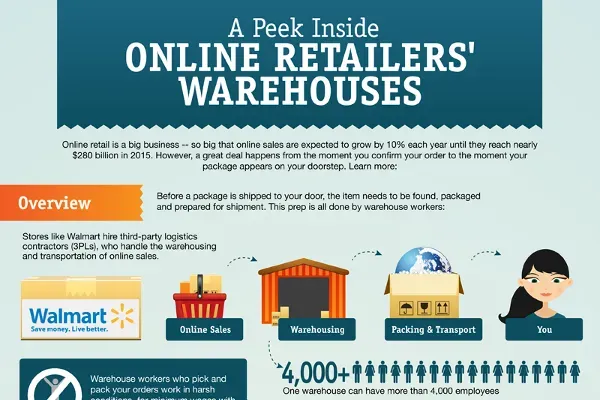In the evolving landscape of artificial intelligence, the term “sweatshop data” has ignited significant debate about the ethical implications of labor in AI training. This term refers to the controversial practice of using low-paid human workers to label and curate data, thereby teaching AI systems how to function effectively. Recent discussions suggest that as AI technologies advance, companies may shift focus from hiring cheap labor in the Global South to seeking expert data from highly skilled professionals. Despite this promising trend, concerns about the persistent reliance on poor labor conditions for tasks like content moderation remain prevalent, highlighting the ongoing challenges in AI labor ethics and the automation of data work. In this context, algorithmic verification has become crucial, as companies strive to ensure that AI systems operate as intended while grappling with the complex reality of their human workforce.
The conversation surrounding ‘sweatshop data’ or low-wage data labor continues to gain traction as technology companies navigate the murky waters of AI development. This phrase encapsulates the reliance on inexpensive human resources to generate data that fuels machine learning algorithms. Critics argue that while a shift towards employing more qualified individuals—often labeled as “expert data” workers—could signal progress, it does not eliminate the underlying issues tied to labor exploitation in AI systems. In fact, as tasks evolve to require more nuanced skills, many of the same low-wage workers remain involved in essential roles such as verifying algorithms and moderating content. Understanding the implications of this workforce dynamic is vital to addressing the broader content moderation challenges faced by AI developers today.
The Reality of Sweatshop Data in the Era of AI
Although some believe that the era of ‘sweatshop data’ is over, evidence suggests otherwise. Many tech giants are still heavily reliant on a global workforce that engages in low-paying, often exploitative data labeling jobs. Researchers such as Milagros Miceli from the Weizenbaum Institute assert that the demand for human oversight in content moderation remains strong, despite advances in AI technology. This dependency illustrates that while AI may be growing smarter and more capable, it has not yet fully replaced the need for human data workers, particularly those in low-wage economies.
Organizations like Meta and TikTok continue to employ thousands of contractors to review and remove harmful content, demonstrating that AI’s limitations are still significant. Even as we move toward automation of data work, many workers who once did data labeling now find themselves engaged in what is termed algorithmic verification—essentially a digital form of labor that ensures AI systems run correctly. This dynamic raises ethical questions about the future of labor in the tech industry and whether the quest for expert data will genuinely eliminate the need for lower-wage human labor.
The Shift from Low-Paid to Expert Data in AI Training
The transition from low-paid data workers to a focus on expert data reflects a significant paradigm shift in AI research. Companies are now acknowledging that training advanced AI models requires not just large datasets, but datasets crafted by qualified professionals. The rise of machine learning techniques such as reinforcement learning highlights this need, as companies seek to build systems that can learn dynamically, similar to DeepMind’s AlphaZero which became proficient in games without traditional data sources.
As AI progresses, organizations are competing to attract specialists with PhDs, shifting the landscape of AI labor from cheap, large-scale labor forces to highly skilled roles that command higher compensation. This trend suggests a move towards a more ethical framework where the emphasis lies on quality over quantity in data training, although it does not entirely absolve the industry from its past reliance on exploitative labor practices. If AI is indeed evolving, the continued offering of fair wages and working conditions for data experts will be crucial.
Algorithmic Verification: The New Frontier of AI Work
As AI systems expand, the concept of algorithmic verification has emerged as a vital component of ensuring AI’s reliability and effectiveness. Workers skilled in this area are tasked with checking and validating the performance of AI algorithms, helping to refine and improve their functionality. This job, while it may be more intellectually demanding than previous data labeling roles, still largely relies on the global workforce that has been structurally exploited in the past.
This transition towards algorithmic verification illustrates how low-paid labor forces remain intertwined with cutting-edge AI projects. Although the focus has shifted to high-skilled technical roles, it’s essential not to overlook those workers who have maintained their positions in this system. Many continue to perform tasks that were previously part of the data labeling process, showing that while certain roles evolve, the exploitation within the industry remains a concern. The duality of needing expert knowledge while still harnessing a form of labor that resembles traditional exploitative practices presents ongoing challenges for ethical AI development.
Navigating Content Moderation Challenges in the AI Era
Content moderation continues to be one of the most challenging areas for AI deployment, largely due to the nuances involved in interpreting human communication. As AI systems learn to automate tasks, human moderators are still needed to navigate complex scenarios that algorithms struggle to interpret. This duality represents a significant challenge as companies implement AI to optimize content oversight while simultaneously needing human verification to ensure efficacy.
Moreover, as the stakes rise—considering the implications of misinformation and hate speech—the demand for skilled content moderators only increases. This highlights the ongoing need for low-wage workers to perform an essential role in maintaining the integrity of information dissemination online. Thus, even in the thrust towards technological advancement, the human element remains key, indicating that the ethical considerations surrounding AI labor practices are more pertinent now than ever before.
The Role of Expert Data in Advancing AI Technologies
The reliance on expert data to train advanced AI systems marks a change in strategy that has significant implications. As AI continues to mature, the emphasis has shifted towards quality input from knowledgeable individuals rather than large quantities of cheap labor. This new direction not only aims to enhance the capabilities of AI but also to improve the ethical landscape surrounding data sourcing. Hiring experts helps to create a more equitable model for AI development, which is essential for sustaining progress in this fast-paced field.
However, this shift raises concerns about accessibility and equity in terms of who benefits from AI advancements. While expert input is crucial, it cannot ignore the impact of those workers who previously contributed to the data ecosystem. With rising costs and competitive salaries for expert data roles, there is a risk of widening the gap between skilled professionals and the labor force historically engaged in data-related tasks, thus necessitating a reevaluation of what ethical labor looks like in AI.
Ethical Analysis of AI Labor Practices
As discussions surrounding AI continue to evolve, ethical analysis of labor practices within the industry has become increasingly important. The term ‘sweatshop data’ encapsulates the darker side of sourcing data, where workers often endure poor conditions for marginal pay. Researchers highlight the psychological impact that comes from jobs involving content moderation and data labeling, which can lead to lasting scars and trauma, thereby prompting calls for companies to reassess their labor practices.
The shift towards hiring more qualified professionals raises questions about the responsibility companies have to ensure that their labor practices are ethical at all levels. It is imperative for organizations to create frameworks that not only include expert data scientists but also foster fair working conditions for the low-wage workers who still play a crucial role in AI systems. Recognizing and addressing these labor issues is critical to creating a sustainable future for AI that respects the dignity of all workers involved.
The Economic Implications of Expert Data in AI Development
The financial landscape of AI is shifting significantly as companies turn their focus towards acquiring expert data. The potential market for this sector is anticipated to be in the hundreds of billions, driving competition among firms to secure the most talented data scientists and researchers. Access to high-quality data has become a premium commodity, one that could redefine how businesses operate and innovate within the AI space, ultimately influencing the global economy.
However, with high monetary stakes come ethical considerations. The drive for expert data presents an opportunity for innovation but may also further entrench existing inequalities in the labor market. Those previously engaged in low-wage data labor can be adversely affected as companies pivot towards hiring more specialized talent, presenting a paradox of progress in the AI industry that must be navigated carefully to avoid repeating past exploitation.
The Future of Automated Data Work in AI
As automation technologies progress, the future of automated data work looks promising, yet remains complex. The assertion that the industry is moving away from ‘sweatshop data’ may be optimistic, but it is tempered by the reality that many processes are still reliant on human oversight. While AI can swiftly analyze vast quantities of information, nuances in human interaction need careful handling that only skilled professionals can provide.
This dual need for automated processes alongside human verification creates a mixed labor landscape. Despite the fear of job loss inherent in automation, new roles are emerging that focus on higher-level verification and oversight—jobs that require specialized skills. It is crucial for stakeholders in AI development to consider not just the technological advancements but also the ethical implications and responsibilities they carry towards laborers and the evolving job market.
The Intersection of AI Ethics and Labor
The intersection of AI ethics and labor practices emphasizes the need for accountability in the rapidly changing landscape of technology. As discussions about sweatshop data linger, companies must grapple with their ethical responsibilities towards the workforce they employ. The evolution of AI labor demands that organizations move beyond simply focusing on output quality—they need to ensure fair labor practices throughout their operations.
Conversations around AI ethics call for transparent practices and acknowledgment of the human aspect behind data. By fostering an environment that values the contributions of all workers, including those involved in data labeling and moderation, the AI industry can promote a healthier relationship with technology—a relationship that acknowledges the sacrifices made by low-paid laborers while pushing for innovation.
Frequently Asked Questions
What does ‘sweatshop data’ refer to in the context of AI labor ethics?
‘Sweatshop data’ refers to the data created under exploitative labor conditions, where workers are paid extremely low wages to perform tasks related to AI training, such as content moderation and data labeling. This practice raises significant concerns related to AI labor ethics, emphasizing the need for fair compensation and humane working conditions in the data labor ecosystem.
How is automation of data work affecting the demand for ‘sweatshop data’?
While automation of data work aims to reduce reliance on human labor, many tasks, particularly qualitative content moderation, still require human oversight, meaning the demand for ‘sweatshop data’ persists. Automated systems often rely on low-cost labor to curate and verify data, which can perpetuate unethical labor practices.
What role does expert data play in the future of AI development compared to ‘sweatshop data’?
Expert data is increasingly sought by AI companies as systems evolve and require higher-quality inputs for tasks beyond basic recognition. This contrasts with ‘sweatshop data’, which relies on low-paid labor for simple data tasks, showcasing a shift toward employing skilled experts rather than continued exploitation of inexpensive labor.
What are the content moderation challenges that keep ‘sweatshop data’ relevant today?
Content moderation challenges persist due to the complexity and sensitivity of assessing harmful material, which requires human judgment and contextual understanding. As a result, companies continue to rely on low-paid contractors, or ‘sweatshop data’, to fulfill these roles while attempting automation solutions that haven’t entirely replaced human intervention.
What is algorithmic verification and how does it relate to ‘sweatshop data’?
Algorithmic verification involves checking AI models to ensure their outputs are accurate and aligned with expectations. This process often depends on ‘sweatshop data’ workers who transition from tasks like content moderation to verification roles, highlighting ongoing dependence on low-wage laborers even as AI technology advances.
| Key Point | Details |
|---|---|
| Definition of Sweatshop Data | Labor used to train AI systems, often sourced from low-cost countries, resulting in poor working conditions. |
| AI Evolution | As AI technology advances, the need for ‘sweatshop data’ diminishes in favor of specialized expert data. |
| Current Trends | Despite claims, the use of low-paid labor persists in data moderation and labeling tasks. |
| Expert Data Demand | The AI industry is shifting towards employing highly skilled specialists instead of cheap labor. |
| Meta’s AI Lab Changes | Mark Zuckerberg’s recruitment spree targets top AI talent amid significant internal shifts. |
Summary
Sweatshop data is still very much relevant in today’s AI landscape, despite claims that it’s becoming obsolete. The shift towards using expert data shows a growing complexity in AI systems, which still rely on low-cost labor for certain tasks. While new paradigms in AI learning emerge, the demand for poorly paid data workers remains, suggesting that the conversation around sweatshop data will continue as the industry evolves.



